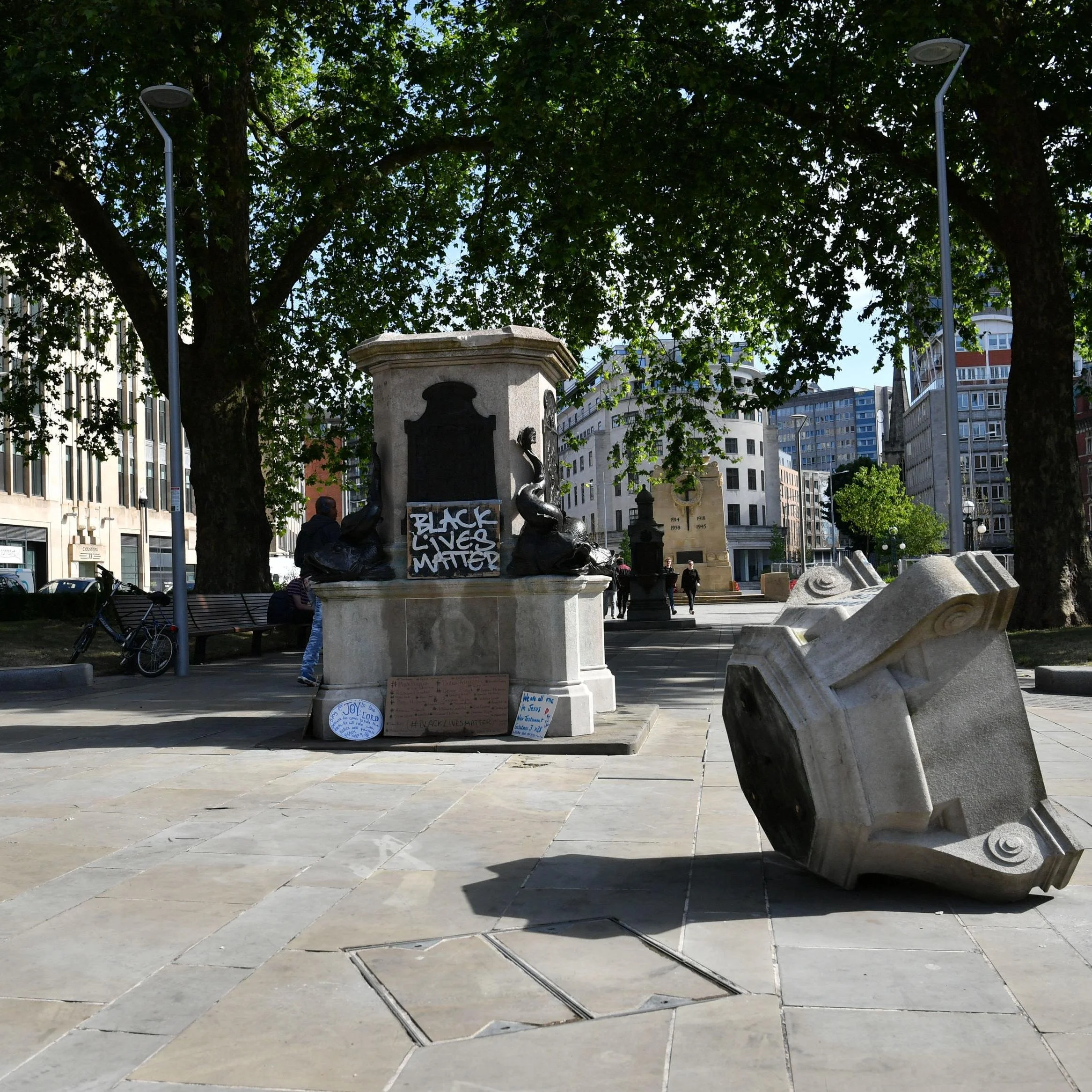Guest blog by Angelique Retief, our Policy and Research Officer
On this day one year ago, we watched as the Colston Statue was pulled down during the Black Lives Matter protests in the aftermath of George Floyd’s murder by a police officer. Amid the Black Lives Matter protests, the far-right backlash, the coronavirus pandemic and severe economic downturn, the UK has faced a year of discontent.
This year has seen Black, Asian and minoritised people disproportionately affected by the pandemic while at the same time the Sewell report denies any existence of institutionalised racism despite the fact that Black, Asian and minoritised people continue to see poorer outcomes in health, housing, education, employment and income. Internationally, this year has seen doctors advocate for the experimentation of the covid vaccine on poor Africans. It has seen the delegitimising of Palestinian resistance to settler colonialism whilst legitimising the Israeli response. It has seen a child die every ten minutes in Yemen because of preventable diseases, and the ‘global north’ more concerned about ‘debt’ repayments from low-income countries than vaccine availability. These are all issues which deserve their own discussion, but they are brought up here only to highlight the pervasiveness these inequalities in the system which have continued despite our society’s recent ‘wokeness’.
These events have (and will continue to) bring into sharp focus the divisions that have existed in our societies for many years whilst also galvanising many to come together to address racial injustice. The principled move from Joseph Rowntree Charitable Trust (JRCT) to investigate the origins of their funding illustrates that despite all this, progress is being made. After the release of the abhorrent Sewell report, JRCT’s move to engage with its own legacy whilst confronting the legacies of colonialism and empire is true leadership. These are uncomfortable truths, but we must not shy away from forcing a fundamental reckoning of the economic inequity (past and present) which has had an impact on the health, education and employment outcomes of Black and Brown communities. To generate a radically different economic future for racialised communities, businesses, economies and people, some understanding of the economic past and present is necessary.
This year also saw Bristol City Council pass a motion regarding atonement and reparation for Bristol’s role in the Transatlantic Trafficking of enslaved Afrikans (TTEA). The motion was championed by the Afrikan ConneXions Consortium and supported by both the Labour and Green Parties. Reparative justice is about far more than money and is an acknowledgement of a crime against humanity. It is a recognition that no crime against humanity can occur with impunity. Reparations programs for victims of human rights violations are intended to bring justice to the victims. They are distinct from development, reconstruction, and victim assistance programs because they are a legal entitlement. They signal recognition that a human rights violation occurred, and those victims were harmed and are therefore entitled to redress.
Bristol played a major role in the Transatlantic Traffic in Enslaved Africans (TTEA) which saw at least 15 million Africans forcibly trafficked to the Caribbean and America and Bristol City Council have therefore taken major strides forward in addressing these legacies throughout the city. This progress is being made through educating people in Bristol on African Caribbean and Black history, through the One Bristol Curriculum and the recently established History Commission. The UK government and others in the development sphere more broadly should follow in the great example set by JRCT and Bristol City Council. We therefore call on other foundations, agencies and organisations to carry out similar projects to develop an understanding of and facing up to these legacies through reparation and reconciliation. Change will come from a unified civil society.
We exist in a time where the narrative of the elite is being discredited, whether that is the Black Lives Matter movement, the MeToo movement or Extinction Rebellion. We are seeing a clear gap between those who make policy and those affected by policy. The focus, therefore, must be for us to come together, to mobilise our collective resources, and stand together against inequality it all its forms.

